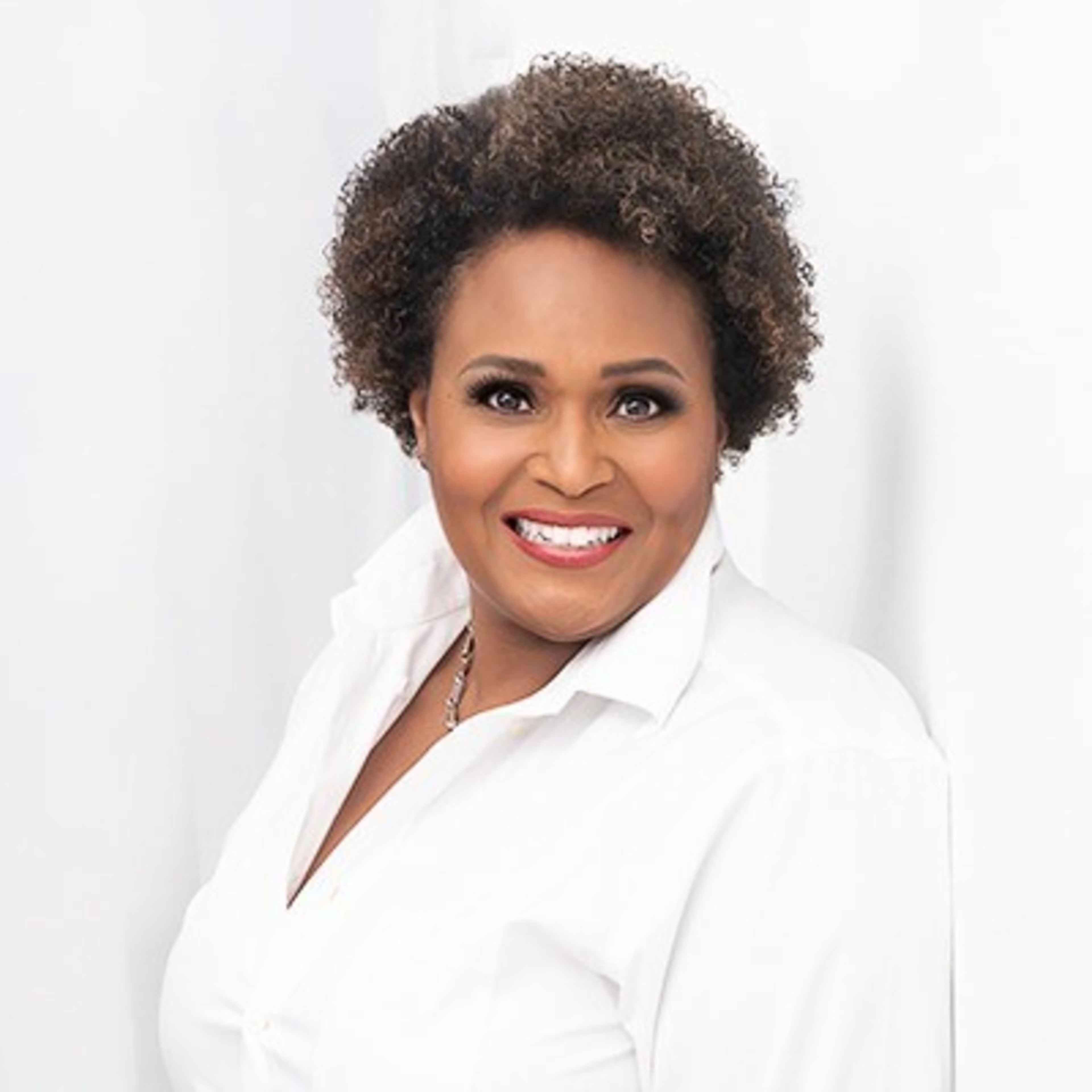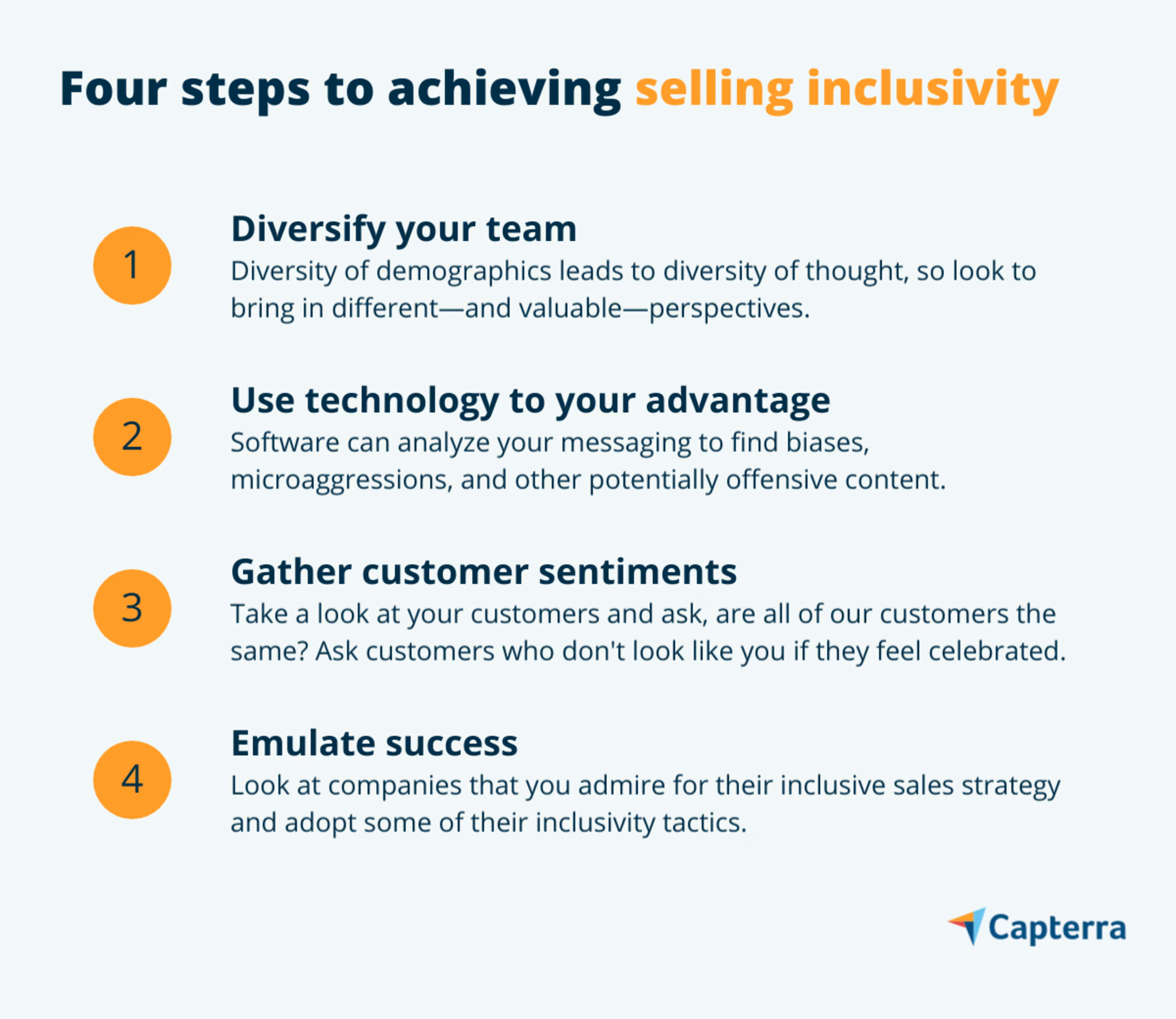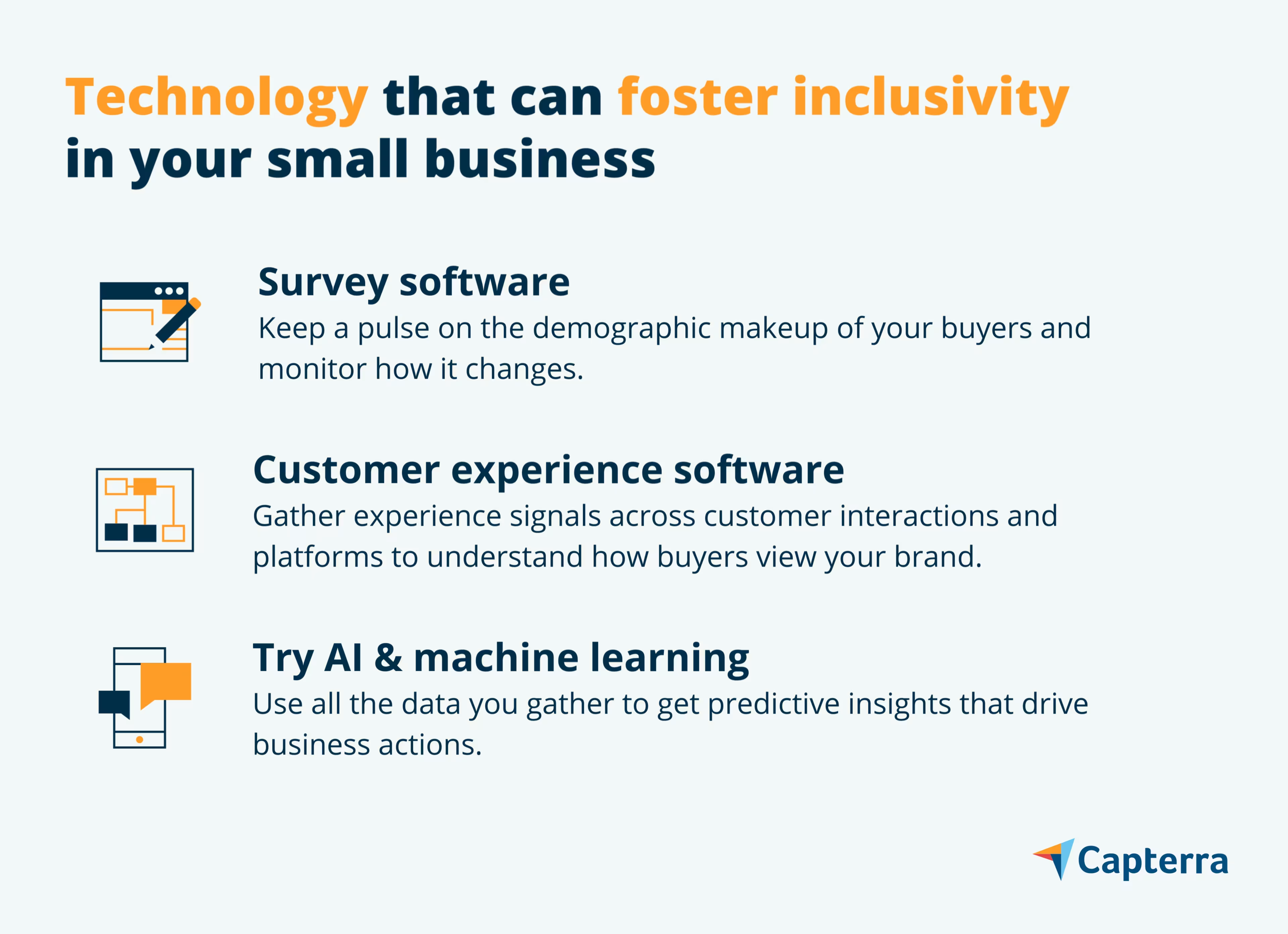Cynthia Barnes shares her advice for focusing on inclusivity in how, and to whom, you sell.
/ An interview with Cynthia Barnes
The following summarizes an interview facilitated by Capterra team member Kyle Rich and global keynote speaker, author, and consultant Cynthia Barnes. This conversation was edited for length and clarity.
The secret to making sales soar, even in tough economic times? Inclusiveness.
"When you create a truly inclusive selling experience for your buyers, the trust factor skyrockets," says Cynthia Barnes.
As the founder and CEO of the National Association of Women Sales Professionals (NAWSP), Barnes is an internationally renowned speaker and writer on how an inclusivity mindset helps businesses dramatically increase revenues.[1]
We sat down with Barnes to discuss how small and midsize businesses (SMBs) can ignite their growth by focusing on inclusivity in how—and to whom—they sell.
What is inclusive selling?
Inclusive selling means expanding your potential customer pool by tapping into new customer segments, rather than being exclusive. This strategy can boost customer satisfaction, and foster mutually advantageous long-term relationships. By building on the proven foundational sales technique of understanding who your customers are—their demographics, interests, and buying behaviors—inclusive selling enables you to use these insights to adapt your products and services, evolve your sales team, and hone your sales approach to connect with a much wider audience.
Make connections, not assumptions
"If we're going to diversify the sales industry," Barnes says, "we've got to not just look at who's selling, but the approach that we are using to reach our buyers."
One of the most important aspects of practicing inclusive selling is to avoid making assumptions about people. Such assumptions can reflect biases that can put off potential customers.
Barnes says she walked into a department store not long ago and heard a young salesperson call out, "What’s up, girl?"
"I looked around to see who she was referring to, and she laughed and said, 'No, I'm talking to you.' This hit me the wrong way," she says.
The young woman hadn’t meant to offend her, but Barnes says, "No one had ever taught her the appropriate way to address someone who looks like me. And the majority of Black women in my circle would find her offensive because of the history of being called 'girl'—no matter what their age was."
Barnes says if a salesperson is assuming things about a customer based on how they look, they can offend or unnerve the customer—and even though they may still buy from that business at that moment, they won't buy again.
"By treating prospects and buyers as individuals, getting to know them, asking questions without assumptions, and checking our biases at the door, we can create an inclusive experience that broadens, rather than narrows, business opportunities.”


Cynthia Barnes
Global keynote speaker, author, and consultant
How to move toward inclusive selling
Barnes recommends the following steps to achieve selling inclusivity:

Diversify your team. Recruit diverse candidates for your team to add a variety of perspectives. "You've got to make sure that your sales representatives reflect the buyers that you're going after, because certain customers will say, 'I'm not going to buy from you because no one looks like me,'" says Barnes.
Use technology to your advantage. Certain sales enablement platforms or other content software can help analyze your marketing and email messaging to find out whether it contains biases, microaggressions, and other potentially offensive content that can put off potential buyers. While software can serve as a filter for biased or non inclusive messaging, it's important to do what you can to understand your potential biases before crafting your message(s), so you can avoid them at the outset.
Ask your customers who don't look like you if they feel seen and heard by your company. That's a hard question to ask if all your customers look just like you, Barnes says. "First you have to ask the hard questions," says Barnes. "Why are all your customers one race, one gender? And then do something about it. Ask your team, ask your customers, and then ask yourself, what's holding us back from appealing to other demographics?"
Emulate success. You don't have to reinvent the wheel. Look at companies that you admire for their inclusive sales strategy and adopt some of their inclusivity tactics. "Find out their best practices, do what they do, and you'll start to see things change," says Barnes.
Software can help you measure inclusivity success
To get a sense of how well you are doing with your inclusivity efforts, you ideally want to know what buyers are saying when you’re not around, says Barnes. Technology can help with this.

Barnes uses a customer experience platform that captures billions of experience signals across customer interactions, including voice, video, digital, IoT, social media, and corporate messaging. Proprietary AI and machine learning technology can generate predictive insights that can help you move toward growth.
Barnes also recommends conducting regular surveys to look at the demographic makeup of your buyers and to see how it changes as you attempt to be more inclusive to currently underrepresented market segments. "And 90% of the time it does," says Barnes.
“People want to give you their opinions. You just have to put yourself in a position to receive them and not get offended.”
Cynthia Barnes
When you talk to your biggest market influencers, have them do more than just promote your product or service. Encourage them to ask questions of their followers—what is their opinion of your product or service, for example.
Leaving a legacy of inclusivity
Is this going to work 100% of the time? No, Barnes says. "But if there's something you can do to make your language more inclusive, then why not?"
“As a small-business leader, you can't make everybody happy. But there is such a thing as doing the right thing in the spirit of inclusivity. Sometimes that means you're going to ruffle some feathers, and that's OK.”
Cynthia Barnes
In the long run, a commitment to inclusivity at your business will heighten the trust factor of your brand, Barnes says.
Barnes tells of how, in 2016, she was contemplating her next career move.
"I had a long history of getting to the top 1% by selling," she says. "But I started to think about my legacy. What is it that I want the world to know and do and be as a result of my existence on this earth?"
After some soul searching, Barnes realized that she wanted to be an advocate for women in business who didn't feel confident, didn't feel comfortable, and who didn't have a voice in today’s society. The result: the NAWSP, a supportive community of ambitious women determined to succeed in sales.
"I am an advocate for those without voices because my mother did it for me," says Barnes. "And as I look at my 11-year-old niece, I never want her to feel like she has to settle because something is not what women do, or not what little Black girls do. I want her to know that she can be anything, be anyone, as long as she's willing to work hard and dream big."
Why do this? Barnes believes it’s her responsibility. "That’s why on my wall I have the words, 'Success is my duty.' That's what I owe my mother and the women who came before her, who enabled me to be who I am."
Check out these additional resources on customer service and sales:
